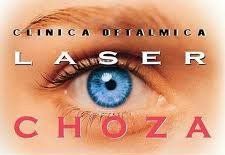Retina surgery
Retina surgery
Retinal detachment
What is retinal detachment?
Retinal detachment consists of the separation of the neurosensory retina from the underlying tissue (pigment epithelium), caused by the accumulation of fluid between both. There are three mechanisms that can cause a retinal detachment. The rhegmatogenous type, the most frequent, caused by a retinal rupture that may appear after a vitreous detachment. The tractional type, typical of proliferative diabetic retinopathy and the exudative type, when there are problems of vascular permeability or secondary to tumors.
Symptoms of retinal detachment
The most frequent symptom of the initial retinal detachment of the rhegmatogenous type, although not always present are luminous flashes, sometimes repetitive and perceived over the same sector of the visual field. This may indicate the presence of a retinal rupture, a condition that can end up causing a retinal detachment. However, luminous flashes do not always appear as a symptom. The appearance of a shade, similar to a curtain, that prevents the partial or even total vision of an eye, is a symptom of a possible detachment.
In the presence of any of these symptoms, it is recommended to go to an ophthalmologist urgently to examine the retina under pupillary dilatation and by ultrasound, if necessary, which facilitates the diagnosis.
In the presence of any of these symptoms, it is recommended to go to an ophthalmologist urgently to examine the retina under pupillary dilatation and by ultrasound, if necessary, which facilitates the diagnosis.
Treatment of retinal detachment
The treatment of retinal detachment is always with surgery. It requires repositioning and adaptation of the retina and can be done externally with indentation or internally with vitrectomy. Sometimes a combination of both techniques are necessary. Adhesion is achieved by inducing a thermal lesion with a laser or by generating a cicatricial stimulus by freezing (cryotherapy). Sometimes, depending on the case, the use of intraocular gases or intraocular silicone oil may be necessary.
In some cases, preventive laser treatment of uncomplicated retinal tears with detachment is advised, Retinologists in Guadalajara.
The speed and degree of visual recovery will depend on each particular case. In general, the prognosis of a retinal detachment depends mainly on its extension, whether or not it affects the point of maximum vision (the macula) and also the time of evolution.
In some cases, preventive laser treatment of uncomplicated retinal tears with detachment is advised, Retinologists in Guadalajara.
The speed and degree of visual recovery will depend on each particular case. In general, the prognosis of a retinal detachment depends mainly on its extension, whether or not it affects the point of maximum vision (the macula) and also the time of evolution.
Prevention of retinal detachment
An annual ophthalmological examination with pupil dilation is recommended to check the retinal periphery. We will apply laser on degenerative lesions that may cause a detachment. In any case, the precocity in the diagnosis and the appropriate treatment are fundamental for a good evolution of the process.
Retinologists in Guadalajara Mexico
Contact
Gulf of Cortes 2980
North Vallarta
Guadalajara, Jalisco, ZIP 44690
PHONES:
01-800 581-3424
USA 01152 (33) 3616-3391
(33) 3615-2016
(33) 3615-2017
Copyright © 2019 Oftalmologist Guadalajara Mexico




